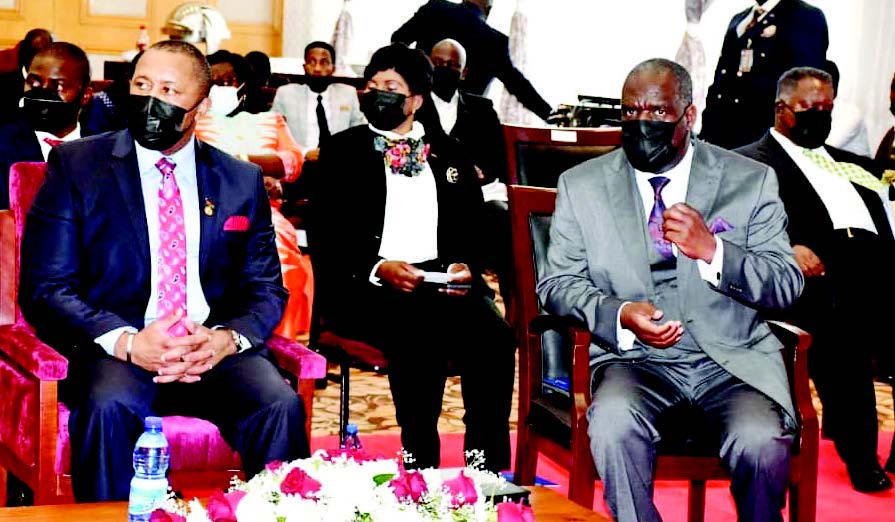New approaches needed to end poverty—Chilima
Vice-President Saulos Chilima has called for need to focus on wealth creation than poverty reduction if Malawi is to win the fight against poverty.
This, he said, should be coupled with transforming the structure of the economy from a predominantly importing to an industrialised exporting and self-sustaining economy.

Chilima was speaking in Lilongwe on Wednesday when he launched the Malawi Poverty Report 2020 established that there is insignificant reduction in poverty among Malawians as poverty levels declined from 51.5 percent in 2017 to 50.7 in 2020, representing a 0.8 percent decline.
He said the report is a launch-pad for the many development programmes that the Tonse Alliance administration has lined up.
Chilima said: “In the short-term, most of what was promised will be fulfilled in a phased manner. Eventually, everything that we promised will be fulfilled.
“In the worst case scenario, we will only modify certain things to reflect the reality on the global stage but we will not abandon a single promise.”
He described the report as important because, to some extent, it provides recommendations for a complementary two-track approach which entails responding effectively to urgent challenges—Covid-19 being one of them—in the short-term while continuing to focus on long-term developmental goals as outlined in the Malawi 2063.
To address the challenges, Chilima said transformation is desired on two fronts, including encouraging positive State involvement, in the economy.
The report shows that the poverty line in kwacha moved up to K165 879 from K137 428 that was required per person per year in 2020.
In comparison between rural and urban poverty, the study found that 56.6 percent of rural areas were poor compared to 19.2 percent in urban areas in 2020 while the proportion that was poor in urban areas was higher in 2020 at 19.2 percent than 17.7 percent in 2017.
Ministry of Economic Planning and Development and Public Sector Reforms Principal Secretary (PS) Winfold Masanjala, who is also a development economist, said there has been some improvement in the distribution of wealth between the rich and the poor in urban areas compared to rural areas which calls for action to bridge the gap.
“What this means is that in 2017 we needed to move 42 percent of rich people’s income and share it with the poor but now the findings tell us that out 37 percent of the rich people’s income and share it with the poor to achieve economic equality,” he said.
On her part, National Statistical Office commissioner of statistics Mercy Kanyuka said the 0.8 percent decline in poverty levels is insignificant; hence, called for the need for interventions that directly address poverty.
On why Malawi seems to have stagnated on poverty without progress despite efforts to reduce it, Kanyuka said further studies needed to be sanctioned because the current study was only looking at earnings and ways of survival at household level.
“It is difficult to tell because when we went out there, we were just asking people about household consumption, what they were buying, among others, so at this stage, we need to undertake a study on why poverty is not going down,” she said.
Speaking on behalf of the World Bank which supported the study, Samson Mkoka, who is senior disaster risk manager, said the bank will continue supporting the country with programmes aimed at improving the poverty situation on the ground.
The National Statistical Office conducted the study from April 2019 to April 2020 and found that there is a mixed bag of outcomes, and while urban poverty is decreasing, rural poverty remains high.





